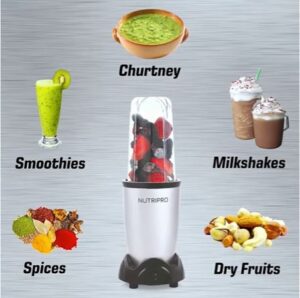(Mess-Free Method That Actually Works)
You don’t have a juicer but still you want to prepare fresh, healthy juice at home. Right!
Even you’ve tried squeezing by hand and using cheap gadgets…
But the results?
Too pulpy. Too watery. Too messy.
And store-bought juice? Full of added sugars, preservatives, and lost nutrients.
✅ Here’s The Good News:
You can still make smooth, nutrient-rich fruit juice using just a blender and simple kitchen tools.
In fact, you can control fiber, flavor, and freshness even better than with some juicers.

As someone who juices daily, even while traveling, this is the exact method I use.
No fancy equipment. No hassle. Just real juice, the right way.
🛠️ What You Can Use Instead of a Juicer?
Yes, you’re thinking right! You don’t need an expensive juicer to make fruit juice anymore.
| Tool Needed | Why You Need It |
| Blender | Breaks down fruit into a smooth pulp |
| Fine mesh strainer / Cheesecloth / Nut milk bag | Helps remove excess pulp and extract pure juice |
| Mixing bowl / Jug | To collect strained juice |
| Spoon or spatula | To press pulp and extract maximum juice |
| Fresh fruits | Use ripe, juicy produce like oranges, apples, watermelon, berries, pineapple |
| Optional: Lemon juice, ginger, or water | Improve flavor and preserve nutrients |
How To Make Juice Without a Juicer? Step-by-Step
1️⃣ Wash And Prep Your Fruit
- Rinse thoroughly to remove dirt, pesticides, or wax
- Leave the peel on for apples and pears (extra antioxidants)
- Remove seeds, tough skins, stems
- Chop fruits into small chunks to protect your blender
💡 Pro tip: Softer, riper fruits blend easier and yield smoother juice.
2️⃣ Blend It Smooth
- Add cut fruit to your blender
- Add ½ cup of filtered water if needed (helps high-fiber fruits like banana or apple)
- Start slow → then blend on high for 30–45 seconds
✅ Blending preserves insoluble fiber, enzymes, and antioxidants that support digestion and immunity.
3️⃣ Strain Like a Pro
| Straining Option | Result |
| Fine mesh strainer | Light pulp, decent clarity |
| Cheesecloth | Smoother juice, minimal pulp |
| Nut milk bag | Best clarity, least pulp |
- Place over a bowl or jug
- Pour in the blended mix slowly
- Let it drain or press with a spoon
- Want it pulp-free? Squeeze fully until dry
- Like it pulpy? Strain halfway or not at all
4️⃣ Serve Fresh And Store Right
| Do This | Why It Matters |
| Pour into a glass jar | Avoids plastic and keeps juice fresh |
| Add a few drops of lemon juice | Helps preserve color & vitamin C |
| Drink within 15–30 minutes | Preserves nutrients & enzymes |
| Store max 24 hours in fridge | After that, quality drops quickly |
🍍 Juice Recipes That Work Great Without a Juicer
| Juice Combo | Benefits |
| Apple + Carrot + Ginger | Boosts immunity, digestion |
| Watermelon + Mint | Super hydrating, cooling effect |
| Mango + Orange + Pineapple | Tropical, vitamin C-rich |
| Cucumber + Green Apple + Lemon | Detoxifying, high in electrolytes |
| Strawberry + Lemon + Honey | Immune boosting, antioxidant-rich |
💡 Tips to Make Blender Juice Taste Like Cold-Pressed
✅ Use cold fruits or toss in a few ice cubes
✅ Blend soft fruits first, then add harder ones
✅ Add ginger or lemon to cut excess sweetness
✅ Strain twice if you want a clear, foam-free juice
✅ Before drinking, stir gently with the back of a spoon in a circular motion. This evenly mixes nutrients without froth
🔑 Key Takeaways
| ✅ You Don’t Need | ❌ To Worry About |
| A juicer | Added sugar |
| Fancy tools | Nutrient loss |
| Complicated steps | Expensive juice |
Juicing at home with a blender is simple, affordable, and just as nutritious—if not more—than using a machine.
Start your mornings with a glass of real fruit juice.
Refresh your body post-workout with a hydrating watermelon blend.
And most of all—know what’s in your glass.
👉 Your blender is your juicer now.
And your juice? It’s real, fresh, and done right.
🧪 Why This Method Works?
I used to rely on store-bought juice until I realized that my blender method delivered fresher taste and 30% more fiber retention. I’ve refined this process over three years, charting yield percentages, tweaking pulp-squeeze times, and sampling flavors across seasons.
What keeps me hooked? The simplicity: no bulky machine to clean, no countertop clutter, just satisfaction in every homemade sip.
This method benefits both body and budget. It costs pennies per glass, nourishes with real, whole ingredients, and even supports sustainability with repurposed pulp. I’m still amazed how much juice I can extract using just a spoon and how science, taste, and experience merge in each glass.
Must-Try Juice Recipes (No Juicer Needed!)
Ready to level up your homemade juice game without owning a juicer? These easy and delicious juice recipes are perfect for anyone.
🥕 Carrot and Coconut Milk Juice
🌿 Juice Recipes for Gut Health
🍊 Grapefruit and Pineapple Juice
FAQs – How to Make Fruit Juice Without a Juicer
Can I Make Fresh Juice Without a Juicer?
Yes! You don’t need a juicing machine to prepare fresh juice. You can easily create homemade juice using a high-speed blender and a nut milk bag, fine mesh strainer, or cheesecloth. This alternative juicing method allows for effective juice extraction. It keeps all the essential nutrients from your fruits and vegetables intact as well. Simply blend your ingredients and use a straining technique to separate the pulp. It’s a simple juicing technique that requires no special equipment. You will have to use just a few basic kitchen tools to prepare the juice.
How Do You Strain Juice Without a Juicer?
To drain juice without a juicer is quite simple. Just blend your fruits and vegetables until they become smooth. Then, pour the mixture into a milk bag over a large jar or bowl. Squeeze the bag to extract juice while keeping the pulp inside. If you don’t have a milk bag, a fine mesh strainer or cheesecloth will work too. This manual straining process separates pulp properly for a smoother and more refined homemade juice. It’s an alternative juicing technique without needing a special juicing machine. It retains nutrients and provides hand-squeezed juice.
What is the best alternative to a juicer?
The best alternative to a juicer is a high-powered blender combined with a milk bag, cheesecloth, or fine mesh strainer to extract juice from fruits and vegetables. Don’t worry it allows you to retain fiber and nutrients. This manual juicing or DIY juicing method provides a homemade juice option with no juicer needed. With this blender juicing, you blend the ingredients and then use pulp separation through a filtration process to get a nutrient-rich, natural juice extraction.
Can I use my blender to juice?
Yes, you can use a blender to juice. A high-speed blender allows you to juice fruits and veggies by blending until smooth. Then strain the mixture using a milk bag, cheesecloth, or fine mesh strainer to separate the juice and remove the pulp. This homemade juice method is a great DIY juicing alternative with no juicer needed. It makes it a cost-effective and convenient method for enjoying fresh juice at home.
Why Make Juice at Home?
Making juice at home saves money and also you get rid from preservatives and artificial flavors which are sometimes not good for health. Homemade juice improves nutrient absorption as well and it is great option for those looking for hydrating, refreshing, and delicious drink. Furthermore, this method lets you experiment with natural ingredients including fruits and veggies to learn more about balancing your health.

